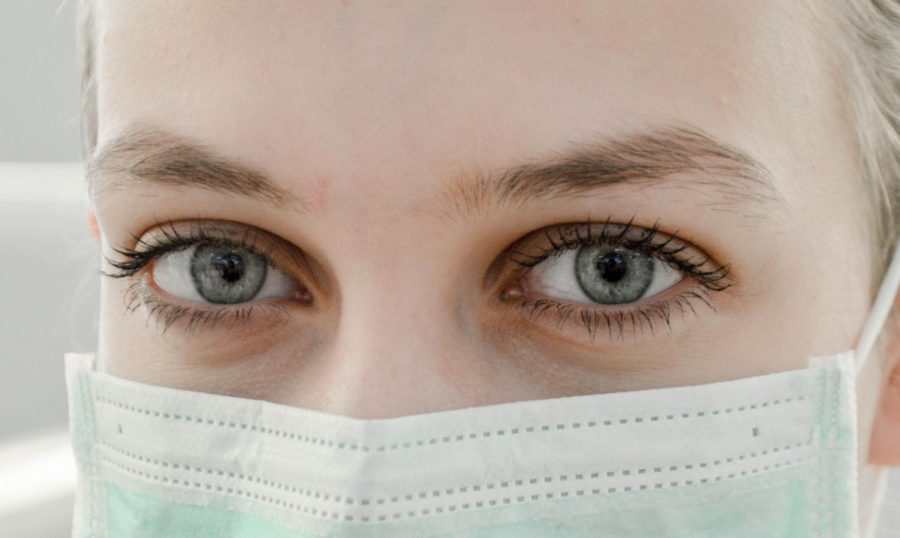Coronavirus doesn’t discriminate by race
Coronavirus has spread rapidly over the past few months, extending its reach from China to the U.S. and causing over 3,000 deaths.
March 2, 2020
While coronavirus itself may be relatively contained in the United States, its effects have reached far beyond a respiratory infection. Over the past two months since Novel Coronavirus has become a global issue, race-based attacks and discrimination against Asian people have increased tenfold. Naturally, there will be some tension surrounding those who have traveled near or in China, but this suspicion and unnecessary caution has spread to Chinese-Americans and an even broader demographic of Asian-Americans who have never visited China or Asia.
On a subway in Los Angeles, a man went on a hate-fueled rant, saying that “every disease has ever came from China.” The woman he was verbally assaulting was not even Chinese, she was Thai. This racist incident is a prime example of rising xenophobia across the country that has been caused not just by coronavirus itself, but also by the misinformation surrounding it.
Major news outlets including the New York Times and the Washington Post have identified the source of coronavirus, yet in the same breath, criticized the Chinese and their culture. As the Post reported coronavirus to come from bats, reporters also mentioned how scientists traveling to Myanmar experienced bat feces falling on their heads in traditional holy caves where many people worship (it is standard in China and Myanmar to remove shoes and socks when entering these holy caves), which insinuates that anyone who entered the cave could be infected with the virus. Not only does this perpetuate a negative ‘dirty’ stereotype surrounding Asian culture, but it also easily places blame on a group of people that never asked for it in the first place.
This reporting is reminiscent of that during the SARS outbreak in the early 2000s. The same sensationalized, stereotype-based journalism played a major role in how outsiders viewed the outbreak and its reach. News outlets such as the New York Times and Newsweek spoke on Chinese customs that “open the country up to disease” such as pigs and chickens living side-by-side with humans, transferring cold and flu disease. Although these cultural practices have been around for centuries, recently they have had a major impact on American perception of Asian culture. Laura Eichelberger, a medical anthropologist from the University of Arizona, noticed that in Manhattan’s Chinatown, businesses experienced major losses of up to 70 percent during the SARS outbreak. The extreme culture difference and separation between the East and the West has made it even easier to place blame on cultural ideals for virus outbreaks. Rather than practicing general caution because of a disease, people chose to avoid the Chinatown area altogether. When Americans feel distanced from an idea or group that is different than theirs, it becomes easier and easier to be fearful and judgemental of those that pose a potential risk. It happened in 2014 with Ebola, the Asian Flu in the 1950s and a smallpox outbreak in the early 20th century that contributed to the implementation of the oppressive Chinese Exclusion Act.
If it’s true that history repeats itself, now is a dangerous time to be Asian-American. The racism we are seeing now could extend further beyond verbal attacks on the subway if we don’t shut down the idea that Chinese culture is the reason that these diseases spread, and if we don’t recognize the difference between being Asian and being a coronavirus carrier. China is a large, densely populated country. It’s obvious that when a disease breaks out, mass infection is inevitable. To suggest that the coronavirus outbreak is due to Chinese culture is simply incorrect. The fact of the matter is, Chinese immigrants in the U.S. or even Asian-Americans in general do not have a higher chance of getting the disease than any other citizen.
The coronavirus does not discriminate by race. It is time for Americans to realize that, although they may be afraid, their fear is no excuse for actions inspired by misinformation and lack of education – especially one as sensitive as a widespread disease. Although we can’t go back and fix past mistakes that we made surrounding SARS and the Chinese Exclusion Act, we can prevent future missteps and racism by valuing accurate and unbiased journalism over the sensationalized, falsified reporting of a crisis.










